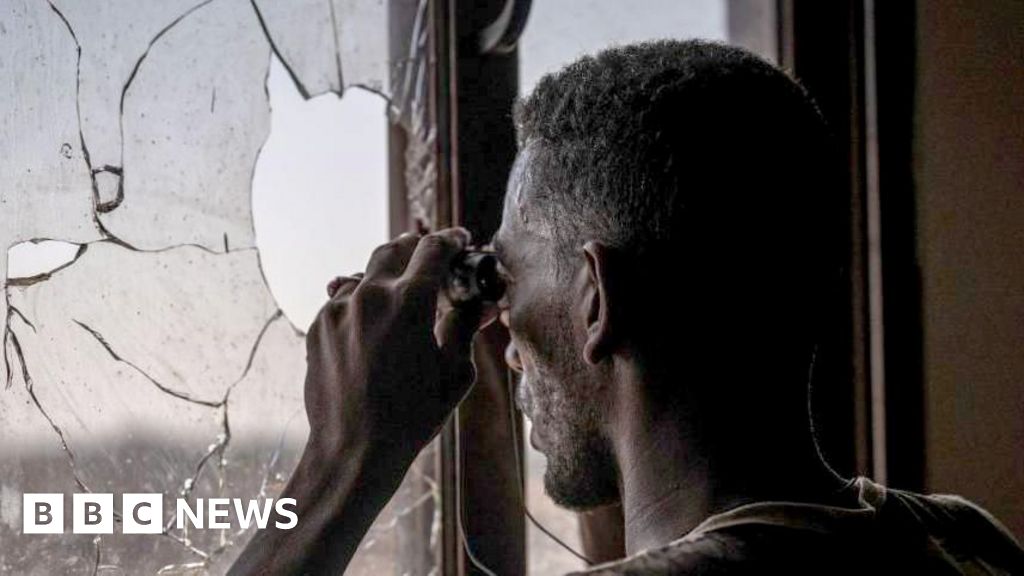Children killed in 'palling' Sudan hospital attack - WHO head

```html Dozens Killed in 'Appalling' Attack on Sudan Hospital, Including Children and Medics
More than 40 people, including children and healthcare workers, have been killed in an attack on a hospital in Sudan's West Kordofan state, according to the World Health Organization (WHO). The Al-Mujlad Hospital, located in the town of Muglad, was reportedly struck on Saturday amid ongoing fighting between the Sudanese army and the paramilitary Rapid Support Forces (RSF). The incident has sparked international condemnation, with the WHO chief calling it "another appalling attack" and demanding an immediate cessation of violence against medical facilities.
Conflicting Accusations and a Humanitarian Catastrophe
The RSF and two prominent civil society groups have blamed the Sudanese army for the attack. However, the army has yet to issue a public statement addressing the allegation. The Sudan Doctors Network and the Emergency Lawyers group also attribute the attack to the Sudanese Armed Forces (SAF), alleging the army targeted the hospital due to the presence of RSF fighters. The RSF has not commented on the claim.
Sudan's civil war, which began in April 2023, has created a humanitarian crisis of immense proportions. The United Nations has described it as the world's worst, with widespread reports of civilian deaths, displacement, and allegations of war crimes, including attacks on medical facilities and personnel.
Hospital Vital for Civilian Care
Al-Mujlad Hospital was reportedly the only functioning healthcare facility in the area, providing crucial services to the local population. The hospital operated a dialysis unit and primarily focused on treating civilians, according to the Emergency Lawyers group. The loss of this facility will severely impact access to healthcare for the already vulnerable population.
UNICEF Warns of Worsening Crisis for Children
The head of UNICEF, Catherine Russell, recently highlighted the devastating impact of the conflict on children, warning of a "worsening crisis" and a significant funding shortfall for aid efforts. During a visit to refugees in neighboring Chad, Russell emphasized that children are bearing the brunt of the war, facing malnutrition, lack of education, and heightened risks of exploitation and disease. Harrowing accounts of sexual violence against children, including infants, have also emerged, further underscoring the severity of the situation.
Historical Context and Current Challenges
Sudan has a long history of political instability and internal conflict. The current crisis stems from a power struggle between the Sudanese army, led by General Abdel Fattah al-Burhan, and the RSF, commanded by General Mohamed Hamdan Dagalo. The conflict has exacerbated existing ethnic tensions and economic hardships, pushing the country further towards collapse.
Dr. Ahmed Soliman, a research fellow at Chatham House specializing in the Horn of Africa, notes that "the deliberate targeting of civilian infrastructure, including hospitals, has become a disturbing trend in the Sudanese conflict. This reflects a complete disregard for international humanitarian law and further undermines the already fragile healthcare system." He adds that "without a concerted effort from the international community to hold those responsible accountable, these atrocities are likely to continue."
The Impact on Healthcare
The repeated attacks on healthcare facilities across Sudan are having a catastrophic impact on the country's ability to provide essential medical services. The destruction of infrastructure, the killing and displacement of healthcare workers, and the disruption of supply chains are all contributing to a collapse of the healthcare system. This is particularly concerning given the prevalence of diseases such as malaria, cholera, and measles, which require timely and effective treatment.
“The situation in Sudan is creating a perfect storm for disease outbreaks,” says Fatima Hassan, a public health specialist working with a local NGO. “The lack of access to clean water and sanitation, coupled with the overcrowding in displacement camps, is creating ideal conditions for the spread of infectious diseases. Without urgent action to restore healthcare services and improve living conditions, we risk a major public health crisis.”
The attack on Al-Mujlad Hospital is the latest in a series of attacks on healthcare facilities in Sudan. The conflict has displaced millions of people and created a severe humanitarian crisis. The UN has warned of a worsening crisis for children, with widespread malnutrition and disease. The international community is urged to take action to protect civilians and hold perpetrators accountable.
The international community faces a significant challenge in addressing the crisis in Sudan. Diplomatic efforts to mediate a ceasefire have so far failed to yield results. The provision of humanitarian aid is hampered by insecurity and logistical challenges. A comprehensive approach is needed, encompassing diplomatic pressure, humanitarian assistance, and accountability for war crimes, to prevent further suffering and avert a complete collapse of the Sudanese state. ```
Originally sourced from: BBC News Africa
